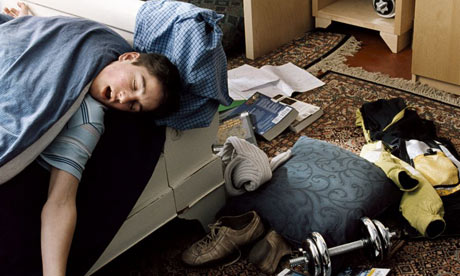Is your teen nocturnal as owl and hard to awaken in the morning? It’s not necessarily because he or she is pushing the limits or fighting the rules. This behaviour pattern depends on the teen’s internal clock.
Internal clock:
Everyone has an internal clock that influences body temperature, sleep cycles, appetite and hormonal changes. The biological and psychological processes that follow the cycle of this 24-hour internal clock are called circadian rhythms. But puberty changes a teen’s internal clock, delaying the time he or she starts feeling sleepy.Most teens need about nine hours of sleep a night. But few teens actually get that much sleep regularly, thanks to factors such as part-time jobs, early-morning classes, homework, extracurricular activities, social demands, and use of computers and other electronic gadgets.Although this might seem like no big deal, sleep deprivation can have serious consequences. Tired teens can find it difficult to concentrate and learn, or even stay awake in class.
Reset the clock:
There are a few things that you can try to help your teen get enough sleep:
1.Adjust the lights.
2.Stick to a schedule.
3.Power naps.
4.Curb the caffeine.
5.Keep the environment calm.
6.Know when to unplug the electronic gadgets.
For many teens, lifestyle changes can effectively improve their sleeping pattern.
BY BASMAH ANSARI




37 Comments